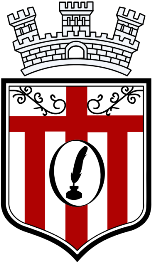Korca

Korca is an interesting town in southeastern Albania, situated near the border with Greece and Macedonia, at the foot of the Morava Mountains, some 850 meters above sea level, on the beautiful slopes of St. Thana hill. Korca has a favorable geographical position because it is situated between trading roads that join Albania with Macedonia (47 km) and Greece (35 km). ¬¬ Korca was an Illyrian settlement in ancient times. Later there was the ancient city of Pelion built near here, which was captured during the second Macedonian War by the Roman Army under Sulpicius Galba in 199 B.C. By the early Middle Ages Korca had become an urban center with the 9th century church, rebuilt in the 14th century. Known in 1280, Korca was destroyed in 1440 by the Ottomans but restored and developed again after the 16th century. Islam penetrated the city of Korce in the 15th century through Albanian Janissary leaders who actively participated in the Fall of Constantinople. Albania has a total area of 28,750 square kilometers. Its coastline is 362 kilometres long and stretches on the Adriatic Sea and the Ionian Sea. The lowlands of the west face the Adriatic Sea. 70% of the country is mountainous and often inaccessible. The highest mountain is Korab situated in the district of Dibra, reaching up to 2,753 metres. The country has a continental climate at its high altitude regions with cold winters and hot summers. Besides the capital city of Tirana, the principal cities are Durrës, Elbasan, Shkodër, Gjirokastër, Vlorë, Korçë and Kukës. Recent administrations have improved the country's infrastructure and opened competition in seaports, railroads, telecommunications, electricity generation, natural gas distribution and airports. Tourism in Albania is a large industry and is growing rapidly. Notable attractions include the ancient sites of Apollonia, Butrinti, and Krujë. Albania's coastline is popular due to its relatively unspoiled nature and its beaches..

